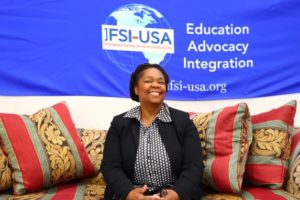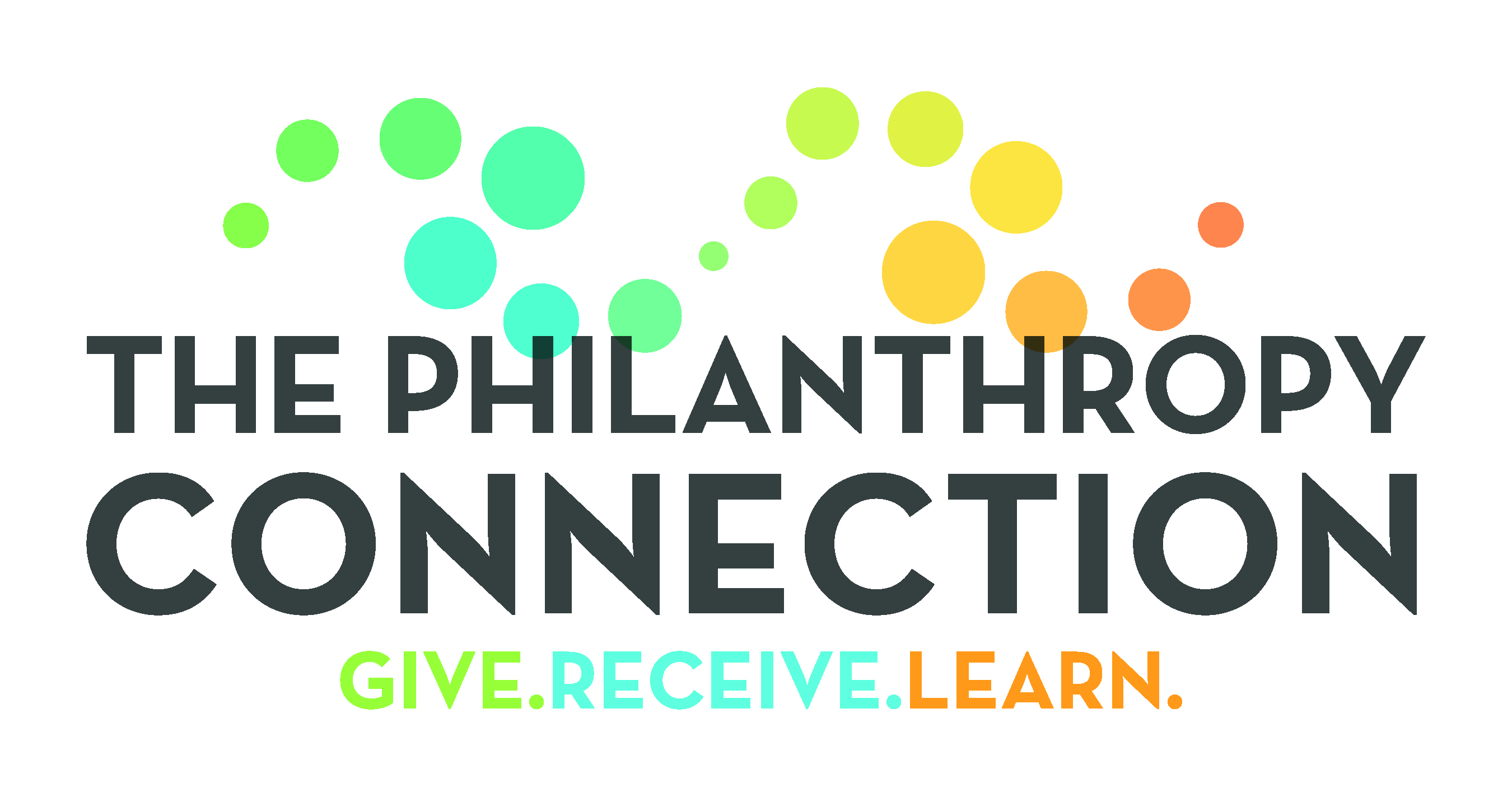Interview with Founder and Executive Director Dr. Geralde Gabeau, Immigrant Family Services Institute

Dr. Gabeau, could you tell us a little about yourself and your founding of IFSI?
I am originally from Haiti. When I was 16 years old, I went to a church where I saw someone reading the Bible upside down. I was so naïve that I thought it was a special skill that someone had. In reality, most of the people at that church did not know how to read or write; they had memorized the verses. That was a shocking discovery for me, and that’s when I started my first kind of intervention. My friend, who later became my husband, and I brainstormed about what we young people could do to help. We decided to start a program to teach adults to read. We were very young, had all the energy in the world, and held classes almost every day.
When I came to Boston over 25 years ago, I thought my job was done and that I wouldn’t have to worry about providing social services to families, but I realized these services are still needed. After I did my doctorate in immigrant integration, I realized there was a big need to cut down the transition time it takes to integrate immigrants into the social and economic fabric of the US with dignity and justice. Six years ago, I started IFSI to address this issue and provide a one-stop center for families to access services.
How have your goals with IFSI changed over time? It sounds as though your work was initially in education and then when you started IFSI it shifted to expediting processing times.
I wouldn’t say it changed so much as I would say it has been extended. Our vision was around integration, so we started with the education program as a first step because it was the easiest thing for us to do. But IFSI stands on three pillars: Education, Advocacy, and Integration. Our original plan was that every five years we’d move from fully developing one pillar to starting to develop the next one, but things have been changing so fast, we’ve been moving fast to embrace all areas of focus.
Is the cornerstone of the education program still PLUS+ After School, which provides homework help, academic support, and enrichment programs to pre-K to 12th graders?
Oh, yes. The majority of people that IFSI serves are Haitians, the second largest foreign-born population in Boston. Children and youth in the Haitian community have always faced enormous challenges as English language learners. They arrive in Boston with little formal education. The best gift that parents can give them is the gift of education. If we don’t fight for our children to have access to quality education, there is no future for them. That’s why education will remain our main area of focus.
Can you talk about the advocacy and integration work your organization does? It must be an enormous challenge, given the ongoing crises the Haitian people have been facing in just this year alone.
It’s been a non-stop advocacy process, and I am so grateful that we have been around to help. Because we are here, we are able to raise our voices with other advocates. We believe that when we work with others, we can do better and are so grateful to those who join hands to help us advocate for respect and dignity. We’ve had to step up our advocacy work organizing rallies, collecting signatures, and meeting with elected officials to ensure that they are aware of what’s going on and that they take a stand. It has been very challenging.
We’ve been working so hard because we are not only dealing with a crisis here in the US, but a crisis back home in Haiti. You know this past year alone there was a massive earthquake, President Jovenel Moïse was assassinated, and we are now seeing a phenomenon that we have never known: gang violence. When I was a little girl in Haiti, we never knew about gangs at all, and now there is gang violence in the streets and kidnappings. We not only have to rally people to continue to support Haiti and save families, but we must continue collecting supplies and medicines to ship to Haiti. In addition, we need to deal with the people involved in international affairs like the Haitian Caucus. We met with Congresswoman Ayanna Pressley to discuss what can be done to stop US interference in Haiti and to push the US to support Haiti in a way that allows Haitians to preserve their dignity.
What other advocacy and integration work has IFSI been doing?
The Temporary Protective Status (TPS) extension has been part of our advocacy effort. (Editor’s note: Following the assassination of President Jovenel Moïse, the Department of Homeland Security granted TPS to individuals from Haiti living in the US for a period of 18 months. IFSI’s TPS Collaborative was established this year to help Boston-area Haitians apply for or renew their TPS status.)
We went to Washington, DC and talked to as many politicians as possible. We rallied and we sent letters explaining that we need to extend TPS to Haitian families so they can at least have access to work permits. IFSI-accredited staff and volunteers, including immigration attorneys and people who speak Creole, help people fill out the TPS applications. So far, we have served over 2,000 families.
We are also helping people fill out work permit forms, and I know there is a Work Form Training session scheduled to train TPC volunteers to help people fill out the forms. It’s wonderful that TPC members are participating because we definitely need all the help possible. Every day, before we even open the door, people are waiting for help. An employment authorization card is so critical in this country for an immigrant to find a job. If you can’t find a job, you don’t have a life.
How has IFSI supported people’s housing needs?
The people who come here do not have the money to pay for housing, so we’ve had to be extremely creative. We called all of our friends and our network to help provide housing for one day or two, or for one week or two. But we needed more capacity. So, we called on property owners referred to us by our supporters. Presently we are signing a one-month lease with the property owners. As soon as the people are situated for that first month, we will consider other options to help them pay their rent. The good thing is, the Mayor’s Office for Immigrant Advancement is helping us access resources to help them, at least for the first month. Our job becomes connecting people with all of the programs that provide continuing rent support because we don’t have the resources to do that.
Another limitation is that if we have three bedrooms available, we have to have three families residing in them. We cannot give multiple bedrooms to one family when we have so many others waiting. So far, we have 7 units in total, and we have placed 26 families. In total, we have more than 600 people that we need to place. Finding the unit is one part of the equation; we also have to furnish the units completely because they have absolutely nothing.
What are some of the most rewarding aspects of your work?
We have so many people who come in and share how grateful they are to be connected to us. Yesterday my husband was driving a family to one of the new housing units and he asked how they heard about IFSI. It turns out they met two other Haitians in the airport who were also coming to Boston and who passed on the advice that they had been given. They were told that IFSI is a lifesaver and can provide formula for their babies, clothing, food, and more. So, even as they arrive at the airport, they are learning about IFSI.
Do you have any instances where people you’ve helped have come back to help?
Right now, we have two young men from among the newly arrived families who help sort and store the material donations we receive. We have several kids who have been in our education programs and are now tutors. It’s something that we are proud of: that people who have received at one end come and give back.
Are there any final points you’d like to make?
We are so grateful to the many people who come to IFSI with bags of clothes, shoes, food, and formula. We are so grateful for all the love and support that people provide. This is how we can make a difference. As individuals with good hearts, we can help people in need, even if at a political level they are being mistreated. We can show that we care about them and that what they saw at the border, or what has happened to them, is not the end of their story. There’s more to come and we will help.
And thank you, TPC, for helping us do this work. An individual, whatever their level, can do so much. By joining hands, we make a difference.
